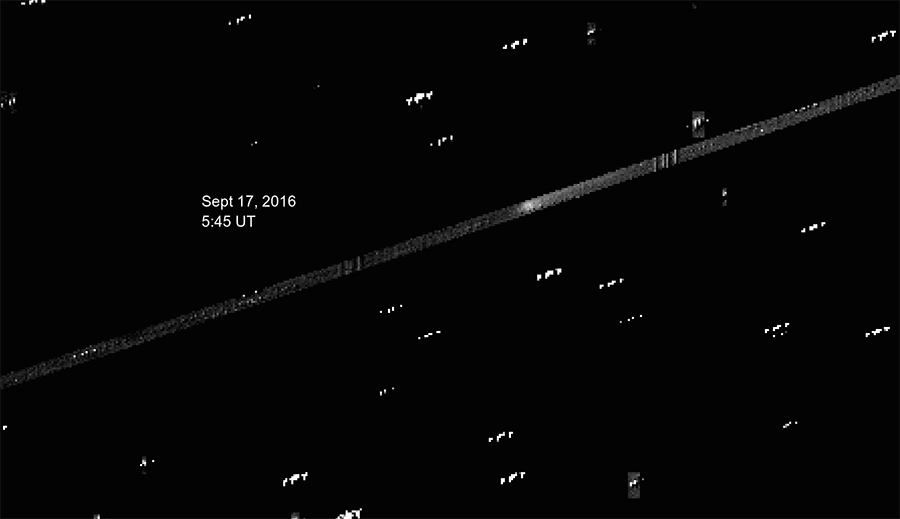After Rosetta’s amazing close-ups of a speeding comet, Kepler gives us the long view
Just days before the European Space Agency’s Rosetta orbiter face-planted onto a comet, NASA’s Kepler space telescope was busy taking the long view.
At the same time that Rosetta was capturing its final breathtaking images of the surface of a comet, the Kepler spacecraft put its planet-hunting work on hold and set its sights on comet 67P/Churyumov–Gerasimenko. That’s the same ball of dust and ice that Rosetta had been trailing through the solar system for two years.
The Kepler images may be less spectacular than the dazzling pictures of shaggy cliffs and smooth plains that Rosetta sent back during its final days, but they are scientifically useful.
NASA officials say the long-range view of the comet taken by Kepler can offer context for the high-resolution data that Rosetta was collecting as it descended closer to the comet.
In addition, the Kepler data could help scientists determine the amount of mass the comet lost each day as it traveled through the solar system.
The GIF above combines a series of images taken over 29.5 hours between Sept. 17 and Sept. 18. Kepler snapped a picture of the comet and its gas-and-dust tail every 30 minutes. The nucleus of the comet moves from the top right to the bottom left in the diagonal strip. The white dots represent stars and other regions that Kepler is currently studying.
The Rosetta mission ended on Sept. 30, when the orbiter made a controlled descent onto the surface of the comet.
ESA researchers say that although the operational part of the mission is now over, the scientific discoveries have only begun.
Do you love science? I do! Follow me @DeborahNetburn and “like” Los Angeles Times Science & Health on Facebook.
ALSO
Apes prove it: You don’t have to be human to understand what someone else is thinking
As cities get warmer, their trees lose some of their ability to take carbon out of the atmosphere
The bigger an animal’s yawn, the bigger its brain, study finds








